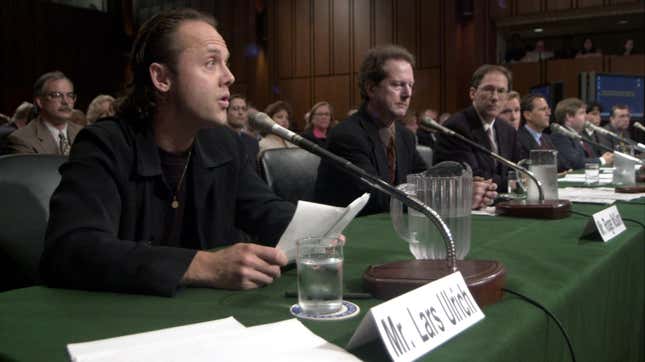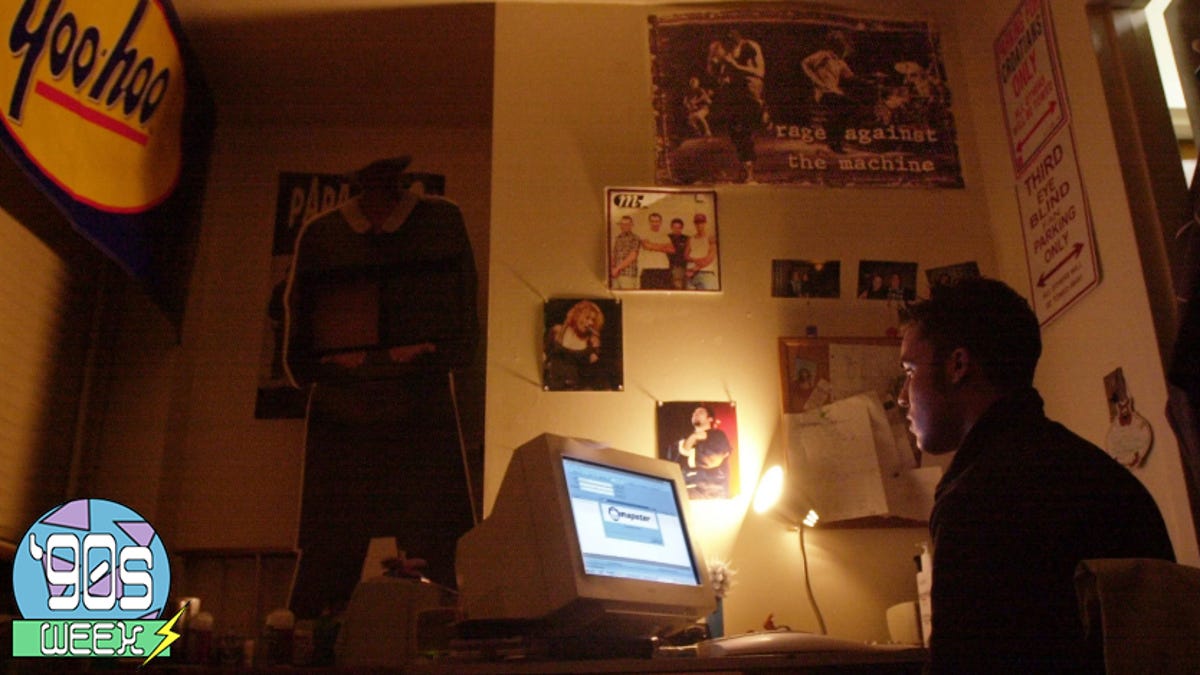The introduction and eventual acceptance of MP3s paved the way for potentially the most significant and controversial ‘90s music innovations: Napster and peer-to-peer file sharing.
In excess of the class of less than three a long time, Napster would increase and tumble, purchase hundreds of thousands of curious people, and upend thoughts all over songs ownership and distribution for a long time to appear. Napter’s founder, a school university student named Shawn Fanning, reportedly articulated his strategy for the services on an world-wide-web information board in 1999. Referred to by quite a few as a “glorified file browser.”
Napster worked by letting consumers see MP3 documents readily available on other computer systems and obtain them. By undertaking so other customers, or friends could then obtain information on their personal computers in flip. The final result was a remarkable and radical growth of the total of songs most likely out there to any a single listener that hurled the field out of the constrained confines of CDs.
“There was no ramp-up. There was no changeover,” Downloaded director Alex Wintertime reported in a 2013 job interview with The Guardian. “It was like that well known shot from 2001: A Space Odyssey when the prehistoric monkey throws a bone in the air and it turns into a spaceship. Napster was a preposterous leap forward.”
Napster launched in May well 1999 and reportedly had 4 million tracks accessible in circulation by October of that very same yr. By March 2000, the website had amassed more than 20 million buyers and by the summer months, some 14,000 tracks were being reportedly currently being downloaded each minute.

Backlash from the report labels who felt like they were being becoming denied payment for songs they owned was sturdy and swift. Labels, led by the Record Market Association of The usa, experimented with to bury Napster in a barrage of copyright lawsuits. Musicians, most notably Metallica and Dr. Dre. also launched their individual heated, superior-profile campaigns in opposition to the startup, but Napster was not the only a single emotion the heat. Personal Napster customers, reportedly as lots of as 18,000 of them, have been also sued, occasionally for simply accessing a handful of tunes. The stop came quickly for Napster. A court docket choose dominated in favor of RIAA and the site was provided just 48 several hours to start out charging consumers for audio.
Napster was acquired by a organization identified as Roxio and then, in an odd string of activities, inevitably acquired by retailer Greatest Acquire before becoming relaunched in 2016 in a brief-lived hard work to revive the band. Unnecessary to say, that did not fairly do the job out. Nonetheless, Napster’s legacy life on in contemporary streaming expert services that slice discounts with the file marketplace that recognized it couldn’t contend with the deal basement price of free of charge.





More Stories
Remembering Roots Musician Steve James 1950–2023
Mark Stewart, Pop Group frontman and revered countercultural musician, dies aged 62 | Music
Musician Hunter Hayes on the cost of fame and anxiety: ‘I’m my hardest critic’